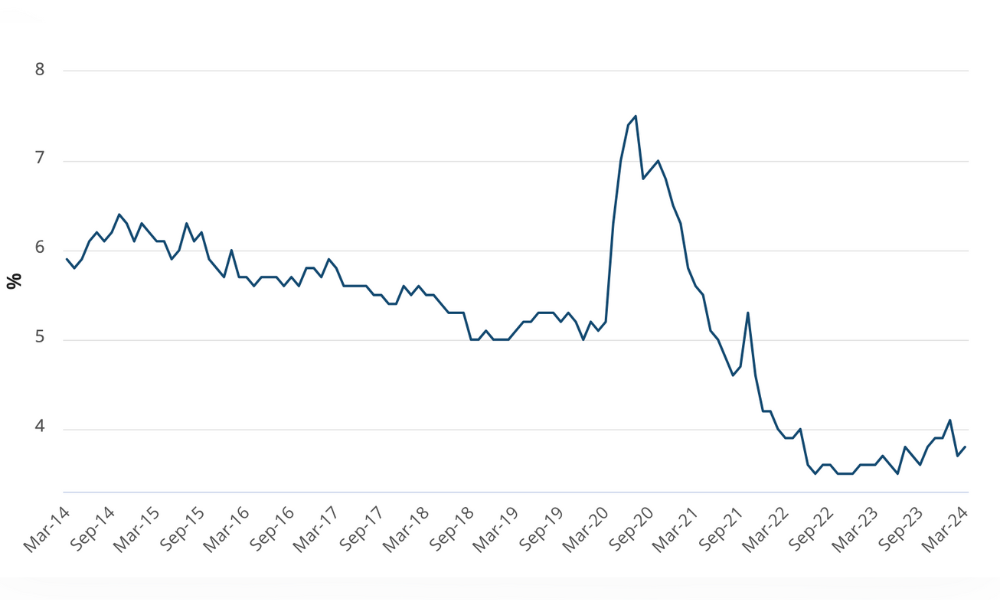Comcare has successfully appealed a compensation claim by an AFP worker who says she was bullied and sexually harassed at work.
A federal police worker who was allegedly bullied, intimidated and sexually harassed by colleagues has lost a compensation claim.
Despite the Administrative Appeals Tribunal finding in her favour last year, the AFP employee recently had her compensation win overturned after a successful appeal from the federal government's workplace insurer, Comcare.
The unsworn AFP employee had claimed compensation for psychiatric injury, saying she had been sexually harassed and bullied at work between 2010 and 2013.
These incidents included sexual harassment and derogatory, sexually explicit and suggestive comments made to her by a male AFP agent, who she claimed would try to touch her and stand behind her and breathe heavily.
She alleged another colleague bullied and harassed her over a 12-month period starting in 2010, including, she said, "speaking behind my back" and "regularly talking about my conduct and behaviour in the office", the Canberra Times reported.
Upon assessment, a doctor diagnosed her with a "personality related adjustment disorder on the background of high interpersonal sensitivity".
However, Comcare rejected her claim for original claim for compensation and launched its own appeal in the Federal Court.
Comcare argued that the tribunal made an error by dealing with a claim for injury that was "fundamentally different" to the original claim.
Originally, AFP employee claimed compensation for an injury that arose from an October 2013 meeting with a colleague and their supervisor.
The woman left the meeting upset and distressed, saying that lies were being spread about her. She went home and was later certified as unfit to return to work.
Comcare argued that the woman’s original claim had focused on this particular meeting, and not on the other bullying and sexual harassment incidents.
Therefore, it argued that it shouldn’t be liable to pay compensation for these incidents, nor should it pay compensation for that meeting since it was considered a reasonable administrative action.
The federal court agreed that the woman’s original claim focused on the 2013 meeting.
"Even though a claim may be generally expressed, it must nevertheless properly and adequately inform Comcare such that Comcare can make an informed decision on whether the claim as made should be met," Justice Geoffrey Flick found.
"Nor does it promote good administration and the proper resolution of claims for compensation to encourage a course whereby claimants may opportunistically (for example) seek to re-characterise a claim as one other than that in fact made," Flick says.
The AFP worker can make a new claim focusing on the incidents that occurred between 2010 and 2012 if she wishes.
Despite the Administrative Appeals Tribunal finding in her favour last year, the AFP employee recently had her compensation win overturned after a successful appeal from the federal government's workplace insurer, Comcare.
The unsworn AFP employee had claimed compensation for psychiatric injury, saying she had been sexually harassed and bullied at work between 2010 and 2013.
These incidents included sexual harassment and derogatory, sexually explicit and suggestive comments made to her by a male AFP agent, who she claimed would try to touch her and stand behind her and breathe heavily.
She alleged another colleague bullied and harassed her over a 12-month period starting in 2010, including, she said, "speaking behind my back" and "regularly talking about my conduct and behaviour in the office", the Canberra Times reported.
Upon assessment, a doctor diagnosed her with a "personality related adjustment disorder on the background of high interpersonal sensitivity".
However, Comcare rejected her claim for original claim for compensation and launched its own appeal in the Federal Court.
Comcare argued that the tribunal made an error by dealing with a claim for injury that was "fundamentally different" to the original claim.
Originally, AFP employee claimed compensation for an injury that arose from an October 2013 meeting with a colleague and their supervisor.
The woman left the meeting upset and distressed, saying that lies were being spread about her. She went home and was later certified as unfit to return to work.
Comcare argued that the woman’s original claim had focused on this particular meeting, and not on the other bullying and sexual harassment incidents.
Therefore, it argued that it shouldn’t be liable to pay compensation for these incidents, nor should it pay compensation for that meeting since it was considered a reasonable administrative action.
The federal court agreed that the woman’s original claim focused on the 2013 meeting.
"Even though a claim may be generally expressed, it must nevertheless properly and adequately inform Comcare such that Comcare can make an informed decision on whether the claim as made should be met," Justice Geoffrey Flick found.
"Nor does it promote good administration and the proper resolution of claims for compensation to encourage a course whereby claimants may opportunistically (for example) seek to re-characterise a claim as one other than that in fact made," Flick says.
The AFP worker can make a new claim focusing on the incidents that occurred between 2010 and 2012 if she wishes.





